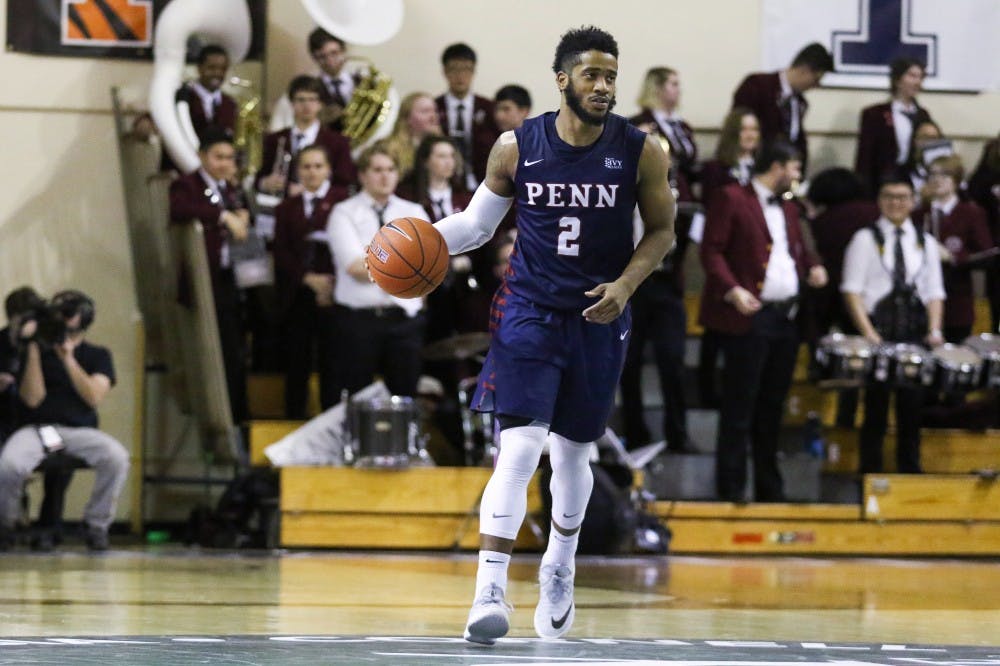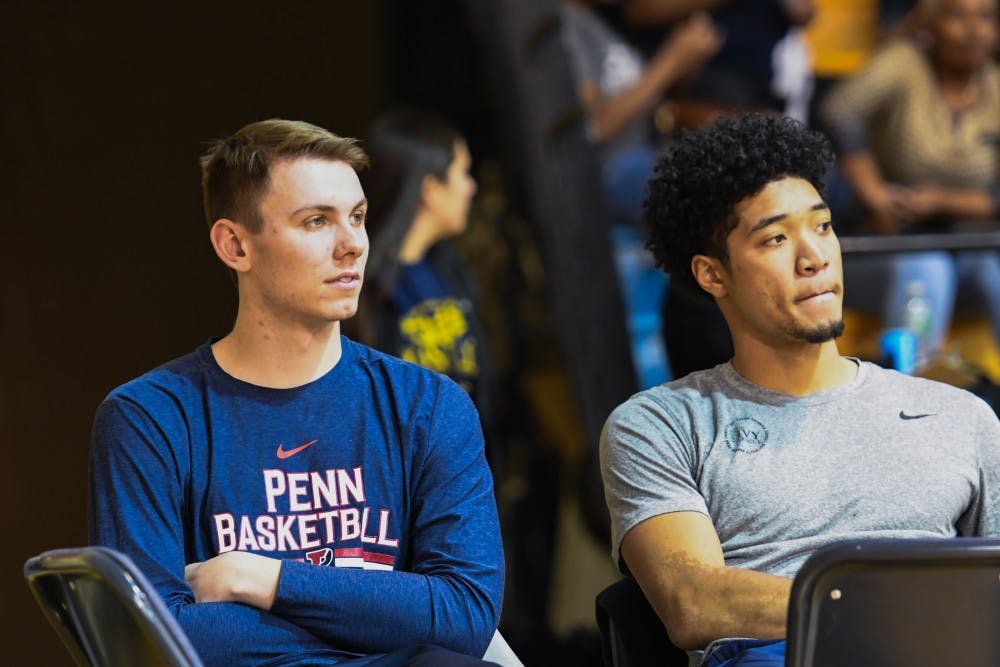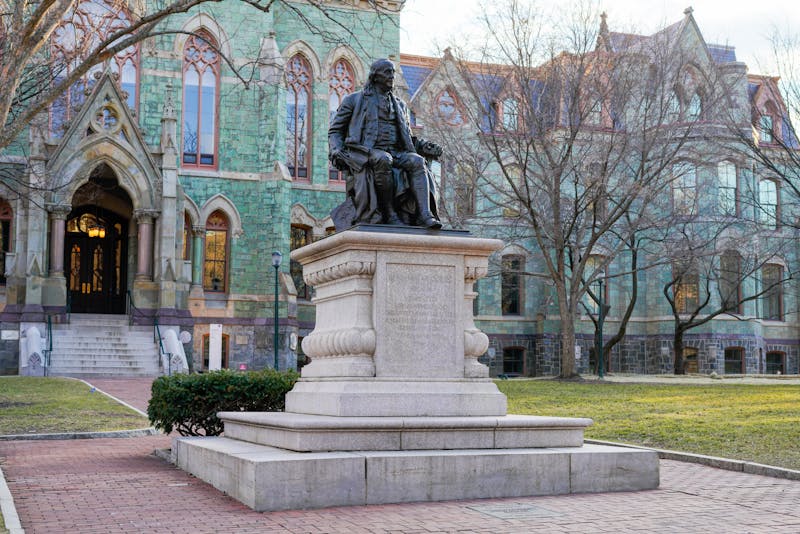
Senior guard Antonio Woods averaged 10 points and 4.5 rebounds in his final season as a member of Penn men's basketball.
Credit: Alec DrugganNEW HAVEN, CONN. — How do you measure success?
Hindsight can make the narrative of a season seem obvious from the beginning. When we revisit history, there can be a tendency to pick out quirks or themes we saw in the preseason and elevate them to the status of harbinger.
Under normal circumstances, you compare postseason reflections to preseason expectations. But when there are a few destiny-altering moments recognized as such even at the time, expectations have to adjust.
That happened this season for Penn men’s basketball: Two injuries even before the season really got underway requires a re-evaluation.
The biggest one, of course, was junior Ryan Betley, last season’s leading scorer. The Quakers missed his presence throughout the season. It was plain to see that star forward AJ Brodeur needed a sidekick who could reliably relieve his scoring burden. Devon Goodman made huge strides and did his best to fill that role, but it wasn’t enough. The Quakers needed a guard who could create his own offense.
The other injury was to Jelani Williams, who was projected to get big minutes as a highly touted guard. Instead, Williams tore his anterior cruciate ligament for the second year running and was forced to cheer from the bench.

Junior guard Ryan Betley and senior guard Tyler Hamilton
Those injuries fundamentally altered the expectations. The Quakers went from Ivy League title favorites to Ivy League Tournament contenders. Overnight, the best team in the League became the third or fourth.
All that to say: Penn men’s basketball lost in the semifinals of the Ivy League Tournament. This season was still a success.
“If you told me in the spring: ‘We’re going to lose Jelani Williams, lose Ryan Betley, with the schedule that we had, to sweep the Big 5 and battle like we did all year, and then with our backs to the wall, we figure out a way to get here …’”
Coach Steve Donahue didn’t have to complete the thought.
Penn won the Big 5 — and swept the other four teams — for the first time since 2001-02. That’s important, even if winning the city’s pseudo-conference doesn’t earn an NCAA Tournament berth. No. 17 Villanova hadn’t lost a city game in six years before Penn beat the defending national champions.
The Quakers won multiple games against NCAA Tournament teams, beat a ranked opponent for the first time in 20 years, and beat the first Power Five opponent in 16 years.
None of that matters in terms of getting to the Big Dance, but Penn wasn’t going to compete for a national title anyway. The list of accomplishments shows progress: In an increasingly competitive League, Donahue’s side proved last year’s success wasn’t a fluke.
That’s not to say that the lack of Betley and Williams — not to mention nagging midseason injuries to forwards Max Rothschild and Michael Wang — count as excuses that wipe away all the missed opportunities of a tumultuous Ivy League season.
A team that wins the Big 5 should do better than .500 in Ivy League play. Period.

Junior guard Devon Goodman
The success of this season was a huge learning experience for a team whose best players are now veterans. The contributions from the freshmen and sophomores are the foundation for them to take a step forward next season.
On paper, next season’s squad will be the most talented in years. Donahue’s first recruiting class will be seniors, and there is depth. The talent will be heavy at the top: the senior big three of Brodeur, Betley, and Goodman joined by skilled youth in Washington, Wang, and Williams.
The problem is that over the last two years, Penn didn’t win games on paper. It won because of heart and grit, led by a group of players who are leaving the program this summer.
“I’m extremely concerned [about the seniors leaving] because I’ve been through a lot in my career — and I shared this with the guys — when I came back into coaching after that year off, I wanted something special, I wanted purpose for what I do, and those kids bring it,” Donahue said. “I think we’ve got a lot of players, but all the other things that go with building a team, this might be on the front of my mind going forward.”
This season didn’t go the way anyone planned. That was apparent before it even got a chance to get underway. But we should still consider it a success.

THEODOROS PAPAZEKOS is a College junior from Pittsburgh and Senior Sports Editor for The Daily Pennsylvanian. He can be reached at papazekos@thedp.com.
The Daily Pennsylvanian is an independent, student-run newspaper. Please consider making a donation to support the coverage that shapes the University. Your generosity ensures a future of strong journalism at Penn.
Donate






